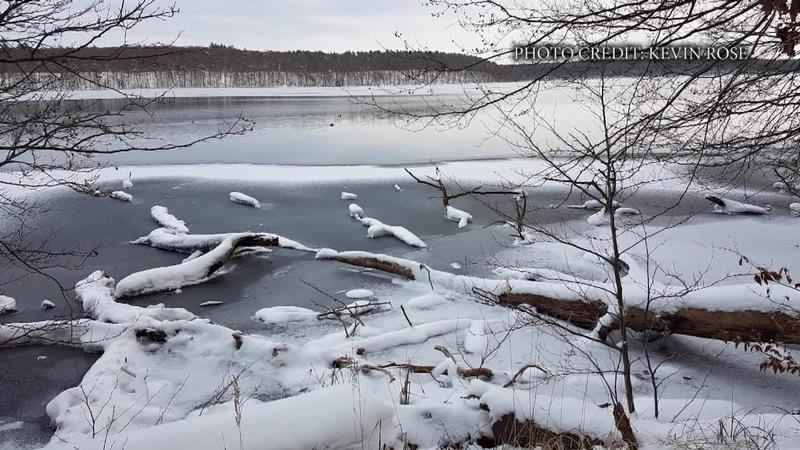Climate Change in the Capital Region: The Real Impact
The Capital Region is experiencing climate change.
[anvplayer video=”5079852″ station=”998132″]
Farmer Tom Nelson, co-owner of Dellavale Farm in Patterson, New York, said his wife’s family has owned the farm for more than 100 years.
Lately, he said, he’s noticed a change.
"In the past 30 years we’ve been doing this, it does seem as though it’s been getting wetter and wetter," Nelson said.

Dr. Chris Thorncroft, director of the UAlbany Atmospheric Sciences Research Center, said the data backs that up.
Thorncroft studied what climate change means for the Capital Region. One impact: more rainfall.
Read Thorncroft’s study here: Journal of Hydrometeorology – Changes in Extreme Precipitation in the United States – 1979-2014
Data from the 4th National Climate Assessment shows rainfall nationwide over the past 110 years.
For the northeast alone, Thorncroft says we’ve seen a 74% increase since 1958.
That’s an increase of up to 8 inches since 1950, according to research group Climate Central.
"That’s bad in and of itself," Thorncroft said. "That leads to flooding, so flooding is also a symptom of climate change that we are seeing in New York state."
Flooding is something Nelson is familiar with — a fairly recent change. He says that means lost crops, too.
"Weather events seem to be more extreme," Nelson said. "It’s either really dry [or] really wet; we don’t get a lot of the ‘normal’ weather."
So why does climate change cause more rainfall for the Capital Region? It has to do with the Clausius Clapeyron Equation.
It’s an exponential equation that means the warmer the air gets, the more moisture it can hold. So as our temperatures click upward, the more rain we’ll see.
But it’s not just rain; frosts are coming later too, which could be good news for farmers.
"I’m aware the growing season can be extended and maybe even in some parts of the state you can actually start thinking about different crops," Thorncroft said.
However, does that mean lakes freeze later?
"Lakes — like Mirror Lake in Lake Placid — have seen close to a month of ice coverage lost over the last hundred years," assistant professor of biological sciences Kevin Rose said. He teaches and researches at Rensselaer Polytechnic Institute.
He’s researched climate change and the effects it has on lake water wildlife for years.
He says the longer summers are impacting the amount of dissolved oxygen in our nation’s lakes. Decreasing oxygen levels will impact salmon and trout populations, and the species that rely on them for food.
In 400 lakes across the world — 300 in the U.S. — oxygen levels went down by up to 18% since 1980.
"That is a very large drop in dissolved oxygen over time," Rose said.
Granted, data for that only goes back 15 years. Rose said there wasn’t a lot of data before the 1980s on that topic.
However, he said many lakes’ oxygen levels were already close to that danger-level threshold.
"So even if it’s not a big change– even a small change– will get you close to your limit of survival hood that can have a major biological consequence," Rose said.
It’s true that the Earth has continuously warmed and cooled throughout the planet’s lifespan, going through 100,000-year cycles.
So NewsChannel 13’s Rachel Tiede asked Thorncroft: is this change all that is?
"There’s always been warming and cooling taking place on this planet, but the warming that we’ve seen over the last century is pretty unprecedented," Thorncroft said, crediting greenhouse gas emissions for the unmatched exponential rise in temperatures.
[anvplayer video=”5079850″ station=”998132″]
So what is the state doing about it?
Rose is part of a giant research project to figure out how New York can battle climate change.
The New York State Climate Impacts Assessment is made up of 80 different researchers from 60 different organizations in the U.S. and Canada.
The last study of its kind was ten years ago.
Senior Project Manager Amanda Stevens said she wants this study to be actionable.
"We don’t want this to be just doom and gloom — all these terrible impacts that we’re going to deal with," Stevens said. "There are ways that we can to handle them, and anticipate what’s going to happen and prepare for it."
Stevens said researches will study the economic impact climate change will have, as well as work with farmers — like Nelson — on how they can help save their livelihoods.
"How does it hit us in human health?" Rose said. "How is it going to hit us in the ecosystem, water supply, transportation, and different sectors of the economy?"
The state’s already made some adjustments by adding more sensors across the state to the Mesonet system. It measures rainfall and acts as an early warning system for floods.
"We really want this to be actionable information for decision makers," Stevens said. "We don’t just want this to be one big technical document that people have to sift through to kind of figure out what they can do with it."
The study will take a while. Results aren’t expected until 2023.
Meanwhile, farmers like Nelson keep living off the land, wondering how quickly their climate is going to change.